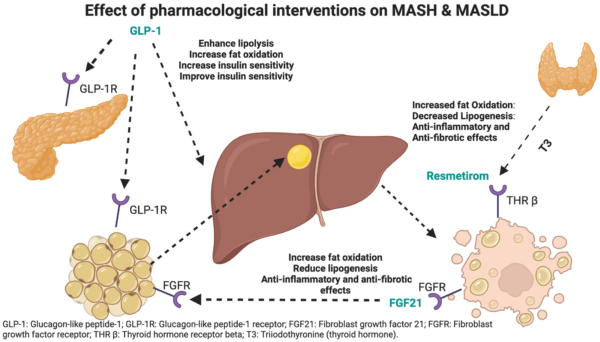
Posted on 01/23/2025 1:07:12 PM PST by Red Badger
Scientists may have identified a way to naturally regulate blood sugar levels and sugar cravings in a similar fashion to drugs like Ozempic.
In mice and humans, the key to unlocking this natural process was found to be a gut microbe and its metabolites – the compounds it produces during digestion.
By increasing the abundance of this one gut microbe in diabetic mice, researchers led by a team at Jiangnan University in China have shown they can "orchestrate the secretion of glucagon-like peptide-1".
Glucagon-like peptide-1 (GLP-1) is a hormone that is naturally produced by the body and which helps regulate blood sugar levels and feelings of fullness. GLP-1's release is stimulated by certain foods and gut microbes, and its mechanism of action is mimicked by drugs like semaglutide (the ingredient behind Ozempic).
People with type 2 diabetes typically have impaired GLP-1 function, leading to issues with blood sugar control, which is why Ozempic and other GLP-1 agonists work as treatments.
These drugs mimic natural processes in the body, and while they have proved very effective, some researchers want to figure out how to get the body to produce more GLP-1 on its own.
"A growing body of research has revealed that our cravings for dietary components originate from signals sent from the gut, a key organ in transmitting dietary preferences," explain the authors.
"However, which genes, gut flora, and metabolites in the gut microenvironment are involved in the regulation of sugar preference is currently unclear."
The new research suggests gut microbes like Bacteroides vulgatus and their metabolites may help shape a person's sweet tooth.
In experiments, if mice could not produce a gut protein, called Ffar4, the researchers found the gut colonies of B. vulgatus shrank. This, in turn, decreased the release of a hormone called FGF21, which is tied to sugar cravings.
New Study Hints at Natural Alternative to Ozempic Hiding in The Gut

Diagram of GLP-1 agonist pathway and FGF21 pathway. (Ayesh, Biomedicines, 2024)
In studies of mice taking GLP-1 agonists, researchers have found the drugs stimulate FGF21.
Meanwhile, in humans, some studies suggest that those with genetic variants for the FGF21 hormone are about 20 percent more likely to be top-ranking consumers of sweet foods.
In a blood analysis of 60 participants with type 2 diabetes and 24 healthy controls, the researchers in China found that Ffar4 mutations, which reduce FGF21 production, are linked to an increased preference for sugar, "which may be an important contributor to the development of diabetes."
What's more, the gut microbiome could be a key mediator of that process.
Sure enough, the research team found that when mice were treated with a metabolite of B. vulgatus, it boosted GLP-1 secretion, which then also triggered the secretion of FGF21.
Together, this meant more blood sugar control and fewer sugar cravings in mice.
Whether the same will extend to humans remains to be seen, but the authors claim their study "provides a strategy for diabetes prevention."
The study was published in Nature Microbiology.
I don’t want to take Ozempic. Would a microbiologist of biochemist please chime in if they have any idea what this means, in practical terms? Is there some food we should eat more of? Some dietary supplement to take?
Sounds like good work.
Let’s hope it proves out.
Jiangnan University in China say eggroll and hot tea.
I took microbiology and got an A.
I remember very little of it at this time.
So drink Ovaltine. (or kefir)

***
Maybe helpful:
https://www.healthline.com/health/foods-that-increase-glp-1#summary
I’d skip the whole grains, personally
Yes, wheat and anything with wheat, barley, rye etc in it!...............
Isn’t this the same study that was posted about the other day, in which pantothenate was the substance they used to dull the appetite for sugar. Vitamin B5 is pantothenic acid. Any chemists out there know if taking pantothenic acid will convert to pantothenate in the body?
Yep....we make and eat/drink our own yogurt and kefir.
Was there mention in the article or related references of the particular food or supplement that mimics Ozempic?
See post 8.
I feed my mice Ozempic and then eat their droppings. Therefore i get the benefits of the GLP-1 function without the bloat and bad side effects. Try it, you’ll like it and you can thank me later.
Another reason to avoid freeping at work. I’m LOL over your post!
I'd blame that on the other you, if I was you.
I’ve finally gotten on the kefir bandwagon.
There is something to the stuff.
I’ll admit, he keeps me on my toes.
Truly you are a man of great wisdom.
Disclaimer: Opinions posted on Free Republic are those of the individual posters and do not necessarily represent the opinion of Free Republic or its management. All materials posted herein are protected by copyright law and the exemption for fair use of copyrighted works.